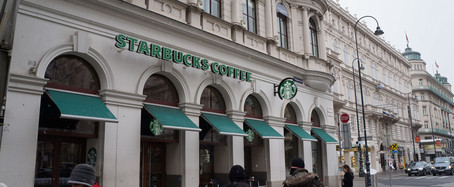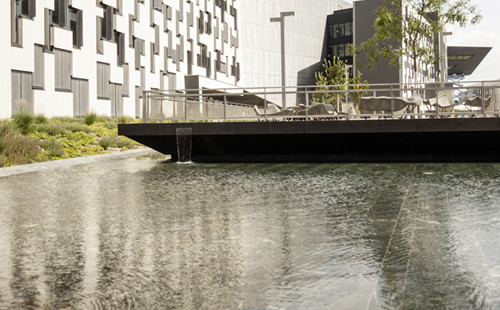IPE in the world: Why Are There So Few Starbucks in Austria?
When was the last time you bought a coffee at Starbucks? Have you ever wondered why Starbucks chose to open a store in your city, or why they didn’t?
Article by D. G. Sidan Raeskyesa, MSc Teaching and Research Associate
When was the last time you bought a coffee at Starbucks? Have you ever wondered why Starbucks chose to open a store in your city, or why they didn’t?
Take Vienna, for example. At first glance, it might seem logical for Starbucks to enter the Austrian market to tap into the city’s long-standing Kaffeehaus culture. Perhaps the company hoped to adapt to local habits reimagine Vienna’s café tradition with a modern, global twist.
But when we look at the broader picture across Europe, the distribution of Starbucks stores tells a more puzzling story. According to Statista, in 2023 the United Kingdom had the most Starbucks locations in Europe (911), followed by Turkey (676), and France (238). Austria, surprisingly, only had two. Even Slovakia, Austria’s smaller neighbor, had eleven. Among countries with comparable GDP per capita, Austria still trails: Switzerland has 9 and Germany, 151.
So, what explains this uneven spread?
We might point to the role of both formal and informal institutions. Culturally, Austria—especially Vienna—has a deeply rooted tradition of independently owned coffee houses, which are not just businesses but cultural institutions. This creates a market environment that may be less welcoming to international chains like Starbucks. In this context, consumer preferences are shaped by identity, heritage, and resistance to homogenization.
On the regulatory side, Austria’s strong labor protections and relatively strict business regulations may raise the cost of operation. By contrast, more liberal economies like the UK offer a more flexible regulatory environment, even if those policies are still intended to benefit local communities. These structural differences can significantly influence market entry strategies for global firms.
But could there be other influences from local regulations at play?
Consider the number of public holidays. Austria has 13 official public holidays—among the highest in Europe—compared to 9 in Germany and 10 in France. While this might seem minor, frequent business closures and reduced foot traffic on holidays could affect retail sales performance and influence decisions about store expansion, especially in high-rent urban areas.
In the end, Starbucks’ limited presence in Austria reminds us that market expansion is never just about income levels or coffee consumption. It's also about navigating local institutions, regulations, labor dynamics, cultural values – and yes, even national holiday calendars.
Sign up for our mailing list for regular updates from the Institute. You can find the subscription form here: Subscribe to the newsletter

